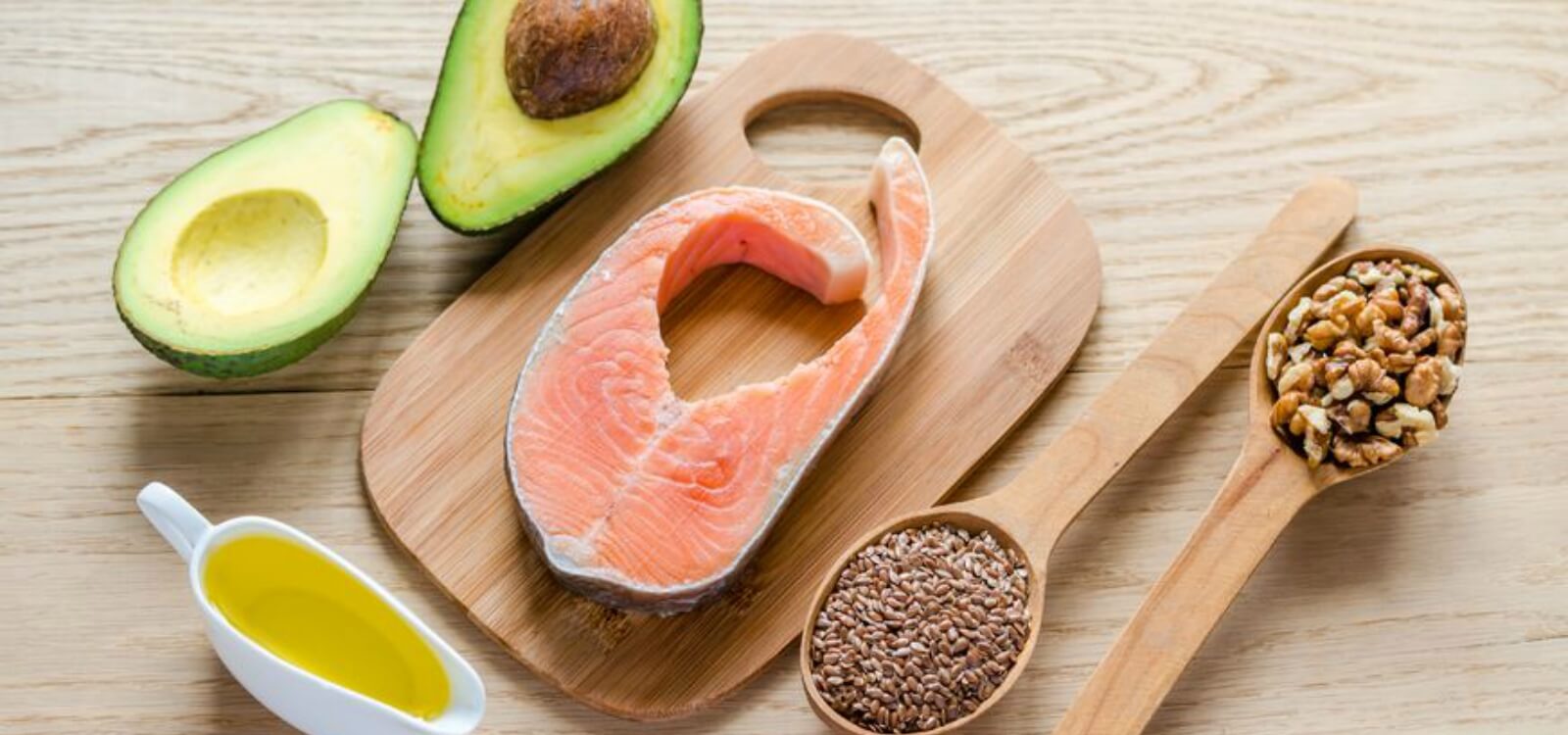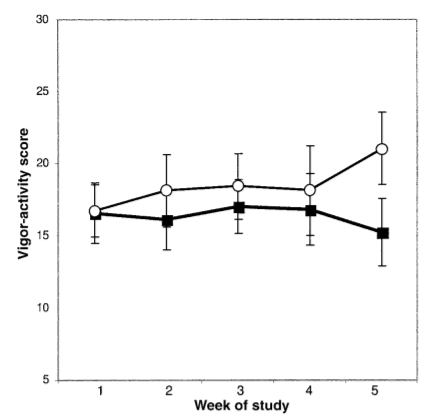Key Takeaways
- Researchers wanted to see if a ketogenic diet was better for fat and weight loss than a higher-carb diet.
- At the end of the study, both groups lost the exact same amount of weight, fat, and muscle, although the ketogenic dieters felt worse and were deficient in several micronutrients.
- If you just want to lose weight, a ketogenic diet can work, but if you want to stay healthy and build or maintain muscle while losing fat, you want to eat more carbs instead of less.
Many people swear that ketogenic diets are the single best way to lose weight.
They can make a strong argument, too.
There’s no shortage of studies showing that low-carb diets can and do help people lose weight fast.
Yet, other studies show that high-carb diets are just as good or even better, so who should you believe?
Well, one answer comes from a key difference in the way these studies were designed. Namely, most of the studies on this topic have given the group that followed a low-carb diet more protein, which we know is one of the most effective ways to reduce hunger, increase metabolic rate, and maintain muscle mass on a diet.
So, is it the absence of carbohydrate that helps people lose weight on low-carb diets, or the additional protein?
That’s what scientists from Arizona State University were hoping to find out in the study we’re looking at today.
What Did the Researchers Do?

The researchers had 20 overweight men and women follow a carefully planned 1,500 calorie per day diet for 6 weeks.
Then, the participants were split evenly into two groups:
- Group one followed a ketogenic diet that ate about 30 grams of carbs per day.
- Group two followed a higher-carb diet that ate about 160 grams of carbs per day.
Here’s the most important part, though:
The researchers designed the meal plan so that both groups would consume the same amount of protein. That means that both the ketogenic diet group and the higher-carb group would benefit equally from the weight loss effects of protein.
Now, it’s worth mentioning that the protein intake was still fairly low for both groups (only about 120 grams, or ~0.5 grams per pound), which probably isn’t enough to get the full benefits of a high-protein diet.
The important thing, though, is that they both ate the same amount of protein. With that variable under control, any difference in weight or fat loss should be due to how much carbohydrate or fat the subjects ate.
The researchers took careful measurements of what the subjects ate throughout the study, including their vitamin and mineral intake, and prepared all of the meals for each person. They also measured the subject’s body composition to see if there were any differences in how much fat or muscle both groups lost.
None of the subjects lifted weights, so we don’t know how the diets might have affected workout performance. Can’t have everything, can we?
What Were the Study Results?
The group that followed a ketogenic diet and the group that followed the higher carb diet lost the same amount of weight and fat, but the ketogenic diet group felt worse after 6 weeks.
Despite what low-carb proponents would have you believe, there was no major difference in fat loss, muscle loss, or overall weight loss between both groups.
(Although, there was a non-significant trend for the higher-carb group to lose more fat and weight.)
That is, both groups ate the same number of calories and grams of protein and, just as you’d expect if you’re a believer in the rules of energy balance, they got the same results.
There were a few negative side effects in the ketogenic diet group, though.
Toward the end of the study, the group following the ketogenic diet reported that they felt worse, had less energy, and were less motivated to get up and move around.
Here’s what this looked like over the six weeks:

The line with white circles is the high-carb group, and the line with black squares is the ketogenic diet group. As you can see, their energy levels got slightly worse, whereas the high-carb group felt better and better throughout the study.
It’s possible this difference might have disappeared over time, but if it didn’t, this would make the ketogenic diet significantly harder to stick to long term.
It would also make it harder to maintain the intensity of your workouts, which is a key component of maintaining your muscle mass while losing fat.
Other research shows that people who switch from a high-carb diet to a low-carb diet can burn about 400 fewer calories per day because they’re less motivated to move.
That said, not everyone has this reaction to ketogenic diets, so it’s also possible that it just comes down to your individual preferences.
When we look at blood markers of heart and metabolic health, there weren’t any major differences.
LDL cholesterol tended to increase more in the ketogenic diet group, but it wasn’t enough to really worry about.
One strike against the ketogenic diet, though, is that it provided significantly fewer micronutrients.
Both groups didn’t quite reach the recommended daily intake (RDI) for vitamin E, magnesium, or iron, but the higher-carb group still consumed more of all of these nutrients. The ketogenic diet group was also below the RDI for thiamin, folate, and calcium, whereas the higher-carb group got plenty of those nutrients.
The ketogenic diet group only consumed 15 grams of fiber—about half of the minimum amount you should eat every day. The higher-carb group, on the other hand, got the recommended 30 grams per day.
That’s not a big deal if you’re only following a diet for a few months to lose weight, but it could lead to micronutrient deficiencies over time. This is in line with other research that shows cutting out certain foods or food groups, particularly to lose weight, can cause nutrient deficiencies.
What Does This Mean for You?

As long as you eat the right amount of calories and protein, you’ll lose the same amount of fat and weight on a low-carb and a higher-carb diet.
In other words, when it comes to total weight loss, how much you eat is more important than what you eat. And if you eat the right amount of protein, then whether you get your remaining calories from carbs or fat doesn’t make a whole heck of a lot of difference when it comes to fat loss.
That said, ketogenic diets have a few drawbacks compared to higher-carb diets:
1. They can be harder to stick to for some people.
Many people feel zonked when they follow a ketogenic diet, and it’s hard to stick to a plan that makes you feel like a wet blanket every day.
Some people like low-carb diets, though, and not everyone has trouble sticking to low-carb diets for the long haul.
So, if you just want to lose weight, which approach you use largely comes down to which one you prefer. When it comes to body composition, though, it’s a different story…
2. Ketogenic diets usually hurt your performance.
Studies go back and forth on this. Some show that ketogenic diets don’t have a major impact on performance, but there’s a consistent trend for people to perform worse on ketogenic diets (see here here here).
This is mainly true for endurance athletes and any sport that requires lots of repeated sprinting, jumping, and running like soccer, football, and basketball. These sports burn through the most glycogen, which is going to be more or less nonexistent if you’re following a ketogenic diet.
Remember that your goal isn’t just to lose weight, it’s to improve your body composition by losing fat and building or maintaining muscle. And the best way to do that is to increase your whole-body strength as much as possible. Ketogenic diets usually make that more difficult, so it’s possible that muscle loss might become more of an issue.
3. Ketogenic diets can be less healthy.
The people who followed the ketogenic diet consumed significantly fewer micronutrients than the group following the higher-carb diet. This could probably be fixed if you were careful about your food choices and supplemented properly, but no matter how you slice it, ketogenic diets are going to make it more difficult to get in all of your vitamins and minerals each day.
All in all, the main takeaway here is that ketogenic diets aren’t any better or worse if your goal is simply to lose fat.
As long as you’re eating the right number of calories and enough protein, you’ll lose just as much fat following both diets.
If you’re focused on building or maintaining muscle, though, then higher-carb diets are generally your best bet. Check out this article to learn why:
How to Know Exactly How Many Carbs You Should Eat










